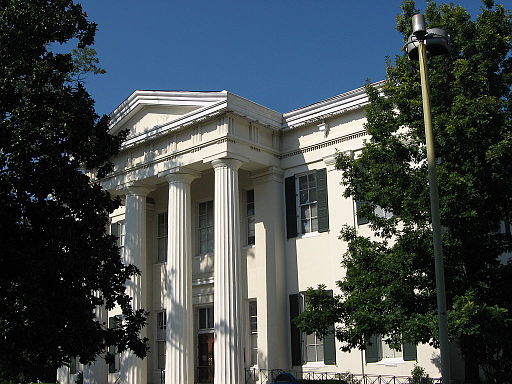Tag: mississippi
-
Hickman defeats Duong in Mississippi state Senate special runoff election

A special general runoff election was held for Mississippi state Senate District 32 on Nov. 23. Rod Hickman earned 59.8% of the vote, defeating Minh Duong, who earned 40.3% State legislative special elections are nonpartisan in Mississippi, meaning that candidates’ party affiliations do not appear on the ballot. Hickman and Duong had advanced from the…
-
Mississippi Senate District 32 special election advances to runoff

The special general runoff election for Mississippi State Senate District 32 is on Nov. 23. Rod Hickman and Minh Duong are competing in the runoff, after finishing in first and second place, respectively, at the general election on Nov. 2. Hickman and Duong defeated seven other candidates in the general election, earning 25.8% and 22.5%…
-
Filing deadline approaches for Mississippi state legislative special elections

Candidates interested in running in special elections for Mississippi state Senate Districts 32 and 38 have until Sept. 13 to file. The general election is scheduled for Nov. 2. If no candidate wins a majority of the vote in the general elections, runoffs will be held on Nov. 23. In District 32, the special election…
-
Special elections in two Mississippi Senate districts set for Nov. 2

Election officials have scheduled the special elections for the District 32 and District 38 seats in the Mississippi State Senate for Nov. 2. The seats became vacant after Sampson Jackson (D) and Tammy Witherspoon (D) resigned on June 30. There are no primaries, and a general runoff election will be held on Nov. 23 if…
-
Voters reelect mayor and 5 of 7 city council members in Jackson, Miss.

The city of Jackson, Miss., held a general election for mayor and all seven seats on the city council on June 8. A primary was held on April 6, and a primary runoff was held on April 27. The filing deadline for this election was Feb. 6. Democratic Mayor Chokwe Antar Lumumba won re-election with…
-
Mississippi Supreme Court overturns 2020 medical marijuana initiative, says the state’s initiative process can’t be used
On May 14, 2021, the Mississippi Supreme Court ruled 6-3 to overturn Ballot Measure 1 (Initiative 65). The medical marijuana initiative was approved by 74% of voters at the 2020 general election. The court ruled that the initiative should not have been placed on the ballot because the initiative petition did not comply with the…
-
Mississippi becomes second state to open vaccinations to everyone over 16

All Mississippi residents over the age of 16 became eligible for vaccinations statewide on March 16. Gov. Tate Reeves (R) announced the change in a tweet on March 15. Before the change took effect, residents aged 50 and older had been eligible for vaccinations since March 4. Mississippi is the second state to open vaccinations…
-
Mississippi lifts mask restrictions; Texas, Alabama announce dates for ending requirements

Thirty-nine states issued statewide mask requirements during the COVID-19 pandemic. This week, the governors of Alabama and Texas announced dates for lifting statewide mask requirements, and the governor of Mississippi lifted the state’s regional mask requirement. As a result, six of the original thirty-nine states with statewide mask requirements have now lifted or announced dates…
-
Eight candidates file to run for mayor of Jackson, Mississippi

The city of Jackson, Mississippi, will hold a partisan primary for mayor on April 6, 2021. The filing deadline for this election was February 6. If no candidate receives at least 50% of the vote in the primary election, a primary runoff election will be held on April 27 between the top two candidates. The…
-
Three state legislative special elections to be decided in runoffs

Three state legislative seats up for special election in 2020 are still undecided as of November 20, 2020. All three are headed to runoff elections: Mississippi House of Representatives District 87 on November 24, Georgia State Senate District 39 on December 1, and Texas State Senate District 30 on December 19. Although special state legislative…

